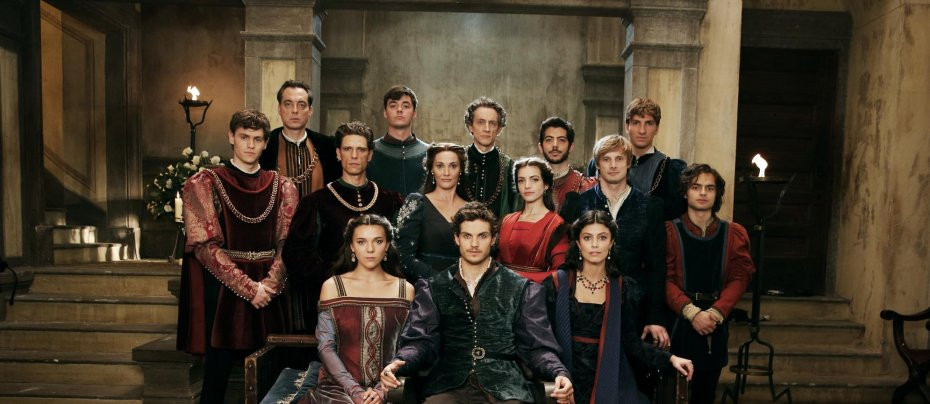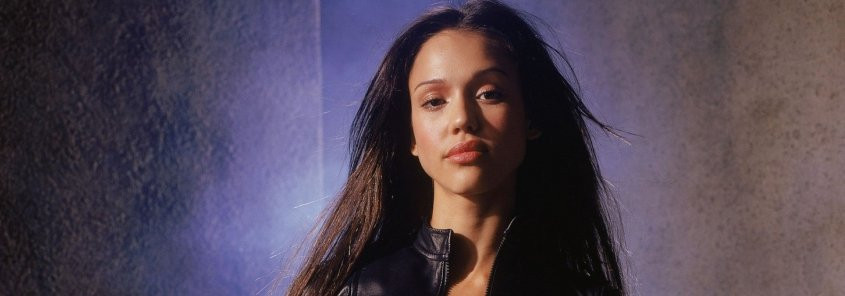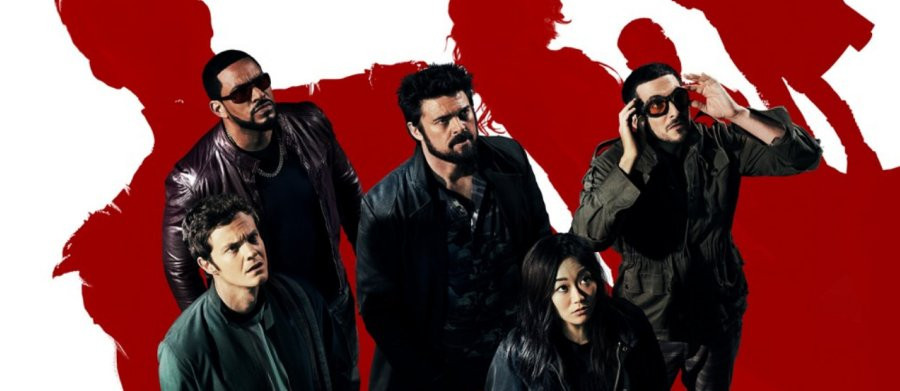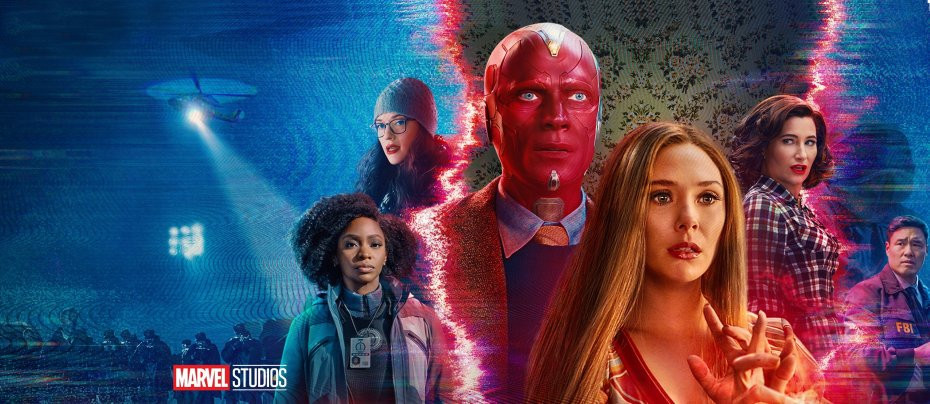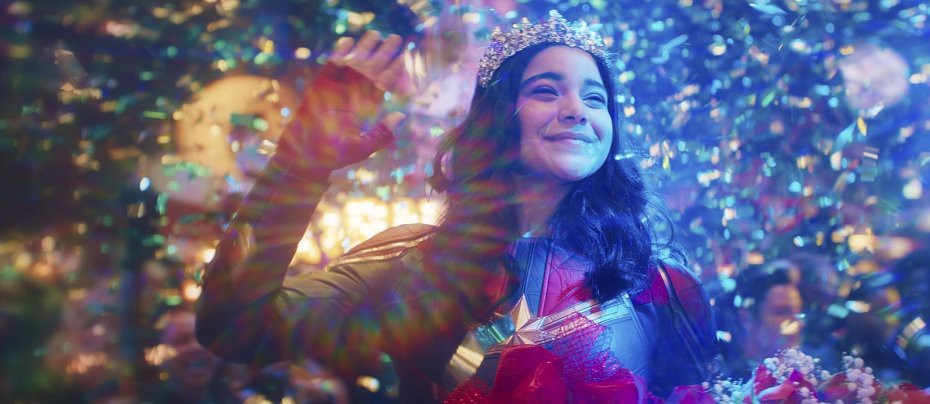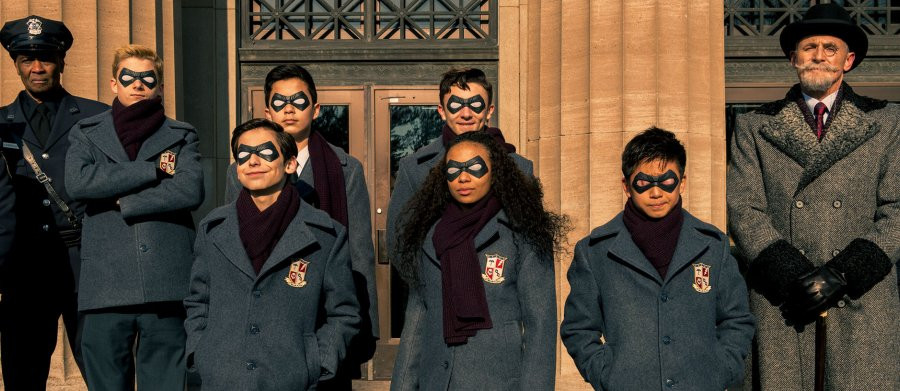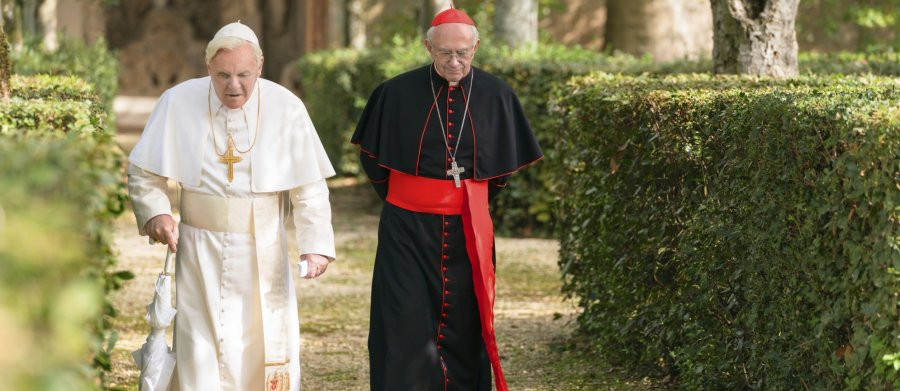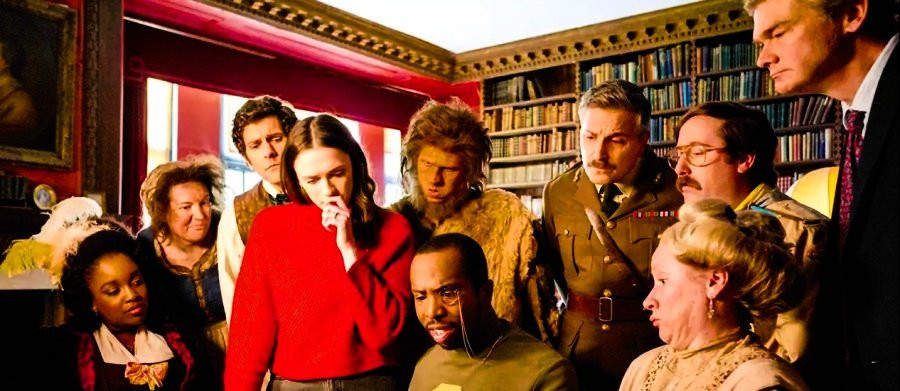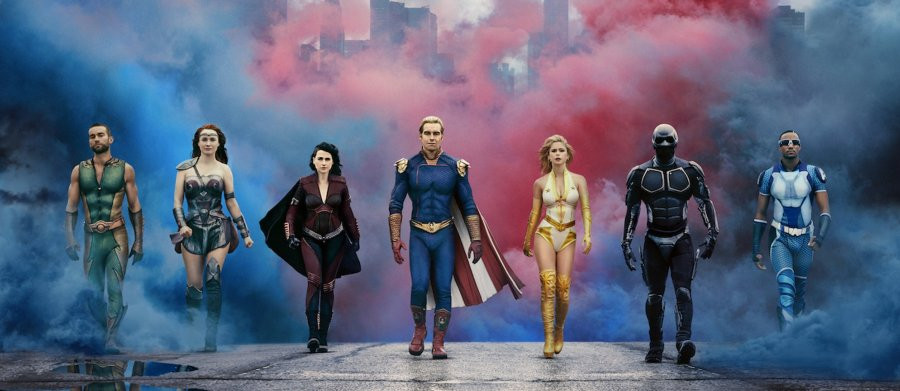
The Boys
2019 - United StatesWhere other generations got New Waves and Realist revolutions, the 2010s will go down in cinematic history as the Decade of the American "Comic Book" Franchise. Extremely expensive films based on the well established intellectual property of Marvel and DC Comics have raked in tens of thousands of millions of dollars.
They have proved quite literally a licence to print money, in spite of the wide variation in the quality of the product, from the slick Joss Whedon-directed 'Avengers Assemble' at the top of the scale to the soulless Joss Whedon-directed 'Justice League' at the bottom. Overall, it is fair to say that the Law of Diminishing Returns has set in, which is hardly surprising given the shallow, repetitive, and formulaic nature of most of the source material. Nevertheless, such is the power of the brand name that even a commercial and artistic failure based on a DC or Marvel property seems to be almost guaranteed a nine figure gross.
This is a genre ripe for satire, and, in fairness, it has not been afraid to satirise itself in superior entries such as 'Deadpool' and 'Shazam.' However, it takes television to provide an in depth evisceration in the form of 'The Boys,' even if, ironically, the series began life in "comic books" - with DC, no less.

The great strength of 'The Boys' is that someone has obviously given some serious thought to how the world might be if "superheroes," known here as "Supes," really existed. What would be the political, economic, and cultural implications? From there, the satire operates on two levels: it satirises the "superhero" genre directly but then goes on to satirise the entertainment industry's obsession with the "superhero" franchise. So the Supes are not only supposed "crimefighters" but the stars of films about their real, imagined, and exaggerated exploits.

Like any modern celebrities, they, or rather their corporate handlers, maintain a significant presence on "social media," are seen to be supporting "good causes" very visibly, and use their carefully curated images to endorse products. Some are also politically active, at least to the extent of helping said corporate handlers to lobby politicians and influence public opinion in their commercial interests. For a fantasy series it quickly becomes strangely credible.
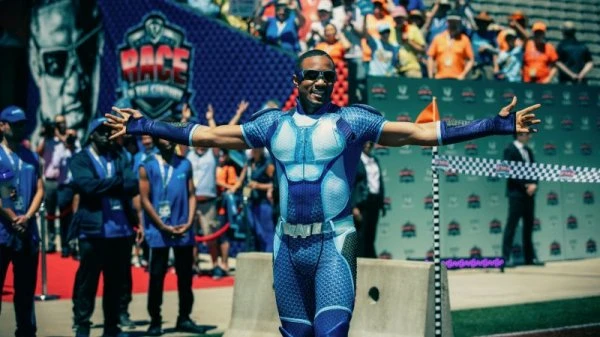
This is intended as a spoiler light overview of the first season. It is fair to say that the show hit the ground running - you will need to watch it to get the double meaning there. We are thrown into a world in which it is simply taken for granted that there are hundreds of Supes. Almost every American city has one. Just American? That is one of the issues that arise.
There is a definite hierarchy to the Supes, but there is no doubt that the Seven are at the very point of the pyramid. The Seven are obviously DC's Justice League, complete with their own versions of Superman, Wonder Woman, Aquaman, and the Flash. There is also an enigmatic ninja type who never says a word and never takes off his mask (Batman reference?), an invisible man ...and a vacancy.
Remember how in 'The Incredibles' it was a great joke how superheroes were forced out of business by lawsuits? That is no longer a joke. It would almost certainly happen now, as even Marvel's Avengers acknowledged. However, what would also almost certainly happen is that big corporations would step in to provide legal cover in return for commercial exploitation. So many Supes, including the Seven, work for Vought International. If Disney had an interest in Defence contracts, they would be Vought.
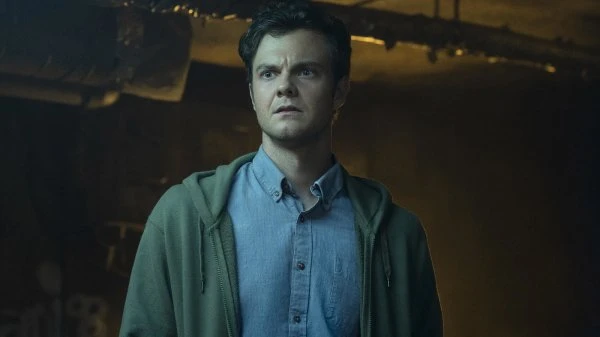
The Seven are viewed primarily from the points of view of two outsiders, Hughie Campbell (Jack Quaid, apparently channelling the young Peter Capaldi), a loser fanboy who becomes one of many victims of the "collateral damage" caused by the Supes' casual recklessness, and Starlight (Erin Moriarty), the "Defender of Des Moines," a Supe who has worked her way slowly through the minor leagues and now dreams of filling said vacancy.

Both the juvenile leads are good, but are overshadowed by two of New Zealand's finest actors as the leaders of the Seven and their opponents, the eponymous Boys.

Karl Urban kick started his career in an early episode of 'Xena Warrior Princess' with a guest performance so precocious that he was allowed an extraordinarily long uninterrupted speech, which is very rare in television, especially from someone who is neither a regular nor a major star. It was no surprise that he went on from there to great success in an impressive list of major film franchises - 'Lord of the Rings,' 'Bourne,' the 'Star Trek' reboot, 'Riddick,' and Marvel's 'Thor.' While these all gave him good roles, they were supporting roles, and in his best cinematic leading role to date, 'Dredd,' he never takes off his helmet once. 'The Boys' therefore offers him the opportunity for the recognition his talents deserve - and he grabs it with both hands.
As foul mouthed former SAS trooper Billy Butcher, he chews up the scenery with glorious abandon, but remains oddly convincing. There really are people like him out there. He is a creature of many layers. At first he seems so obviously untrustworthy that he must be trustworthy. Only gradually is it revealed that he really is very untrustworthy. He is, viewed objectively, a manipulative psychopath who seems to enjoy premeditated murder a bit too much for a hero - which is what he is.

That same sentence can be applied word for word to Homelander, the Superman analogue played by Urban's fellow Kiwi Antony Starr, previously best known for the highly acclaimed 'Banshee.' He is the mirror image of Butcher in that he is ostensibly a hero - the ultimate hero in fact - but really the villain of the piece, where the criminal Butcher is the leader of the team we are invited to view as the good guys. Homelander is the personification of the principle that power corrupts and absolute power corrupts absolutely. Yet, while there is never anything remotely likeable about Homelander, Starr's subtle performance evokes a reluctant sympathy for the evil Superman, who is loved by millions but has never really been loved. In many ways the most intelligent character, in other ways he is touchingly naïve.
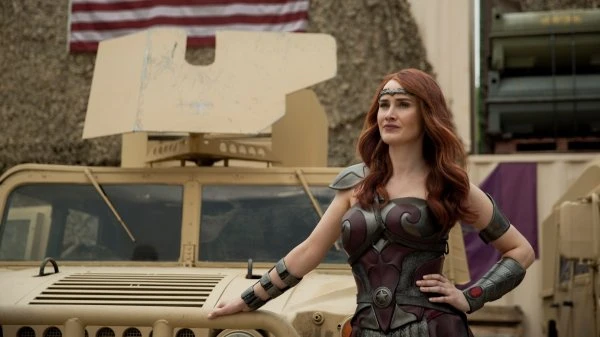
The beautiful Dominique McElligott, from 'Hell on Wheels' and 'The Last Tycoon,' is well cast as Queen Maeve, basically Wonder Woman turned into a bitter drunk, and the only complaint is that we do not see enough of her. As the Machiavellian corporate executive tasked with looking after the Supes, Elisabeth Shue reminds us of what a great actress she is and again begs the question why she keeps disappearing for years on end. The answer is found in Hollywood's attitude to older women in general, which in Hollywood means any woman over thirty.

Tomer Capon plays the Frenchiest Frenchman ever as Butcher's sidekick, er, Frenchie, with just a soupcon of Jean Reno and a pinch of Phillipe Noiret. Frenchie's laid-back attitude provides a nice creative tension and contrast with the meticulous, borderline OCD approach of Butcher's other sidekick, Mother's Milk, played by Laz Alonso. That we like them more than their actions tell us we should is part of the wonderful ambiguity of 'The Boys.' This is exemplified by The Deep (Chace Crawford), a cut price Aquaman whose sleaziness is mitigated by his genuine love for Oceanic life - leading to a couple of darkly comic moments.
Although the writers of 'The Boys' seem to come from the usual direction - Seth Rogen is an Executive Producer - the script deserves credit for its willingness to land its satirical blows left and right. The CIA gives the Boys spasmodic help not because Benevolent Government sees an Evil Corporation as a threat to Democracy, but because the existence of Supes threatens to make the whole Military Industrial Complex redundant - a point well made in a fine scene between Shue and the US Secretary of Defence (Jim Beaver). It also takes a daring swipe at the corporate response to the "Me Too" movement and consequent forced apologies. An extended attack on evangelical Christianity is misjudged: religious hypocrisy is, of course, fair game for satire, but since it is now almost impossible to see mainstream entertainment media portraying evangelical Christians as anything but hypocrites, which most are not, it comes across as lazy and tired in a show to which those words do not usually apply.
Indeed, the satire in 'The Boys,' an Amazon production, is at its bravest and best when biting the hand that feeds it by going straight for the mainstream entertainment media themselves. The mimicking of promotional material is spot on. Indeed, there is commendable attention to details that are easy to miss in this and other respects. There are scenes and brief moments that are worth rewatching very carefully. The reactions to a "social media" video of a disastrous "Make A Wish" visit by one of the Seven to a teenager with cancer are another very dark comic highlight. Someone put a great deal of effort into the "trivia" notes on Amazon, many of them posing as marketing from the Vought Corporation, a nice touch.
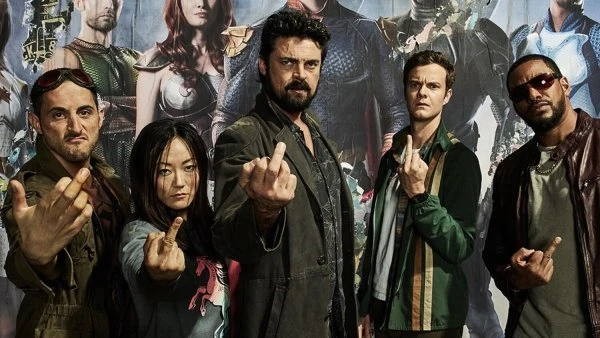
Like 'The Expanse,' currently its stable mate at Amazon, 'The Boys' is an adult show in every sense. Its sexual references, graphic violence, and salty language, especially Butcher's, are certainly not for children, but neither are they gratuitous or prurient. They advance plot and character, and are in fact necessary to do so. At the same time, 'The Boys' is adult in the sense of being grown up and intelligent. It invites us to reflect on the nature of celebrity and the power of the entertainment media in our own world. Are we too uncritical of those any of us might happen to view as a "superhero" - whether it is Obama or Trump or Johnson or Corbyn or Putin or Macron or Trudeau or Ardern, or any of the actors or singers who seem intent on setting themselves up as prophets these days? Are they who they appear to be? Can we trust the image the media present to us? For an amusing show, 'The Boys' asks some serious questions.
Reviews by John Winterson Richards
John continues his review of The Boys - covering Seasons 2 & 3
Seen this show? How do you rate it?
Seen this show? How do you rate it?
Published on August 6th, 2021. Written by John Winterson Richards for Television Heaven.


